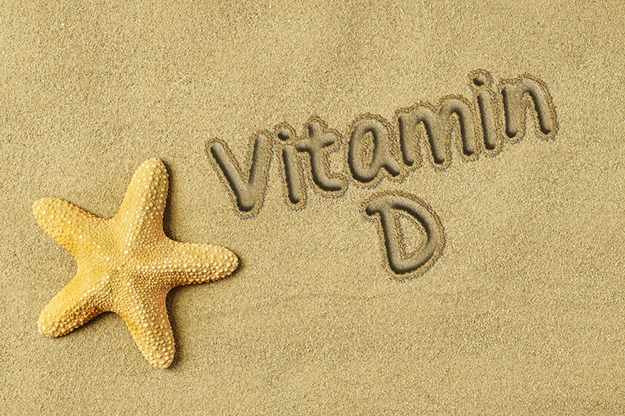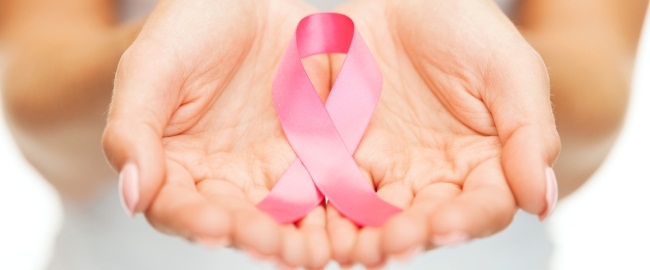Breast health begins with a sense of what's normal for your breast. Breast health includes concerns about breast lumps, breast pain or nipple discharge. For Breast health you can consider doing regular breast self-exams. So be 'breast aware' by following expert’s articles on Hellodox Health App.

Among the most popular topics in biology in recent years is the human microbiome, the trillions of bacteria and other tiny organisms inside and outside our bodies that outnumber our own cells by as much as three-to-one. Much of the news on this topic has been about the colony of bacteria deep in your gut; scientists believe that the mix may contribute to all sorts of medical conditions ranging from Crohn's disease, an inflammatory bowel disorder, to anxiety.
Now it looks like the microbiomes in other parts of our bodies may also play an important role in disease.
In one of the most recent studies, researchers from the Mayo Clinic have identified significant differences in the breast bacteria of women with and without breast cancer.
The paper, published in the journal Scientific Reports, reveals that inside the breast is a complex microscopic world much different from that of the skin tissue just outside. Researchers used DNA sequencing to analyze sterile breast tissue removed from 33 women in the operating room and compared the results to breast skin and cheek swabs taken from the same patients.
The tiny organisms contained within the breast of women who had benign breast disease - lesions and abnormalities that ended up not being cancerous - were dramatically different from those in samples taken from the same locations in women who did have cancer. Women with breast cancer had more abundance of a variety of bacteria such as Fusobacterium, Atopobium and Lactobacillus. And their skin microbiome just inches away seemed completely distinct.
"There were really striking differences between skin tissue and breast tissue," said Tina J. Hieken, a Mayo Clinic breast surgical oncologist who led the study. Not only did breast skin have a different mix of bacteria, but the bacteria that lived there were more abundant.
Unlike previous breast microbiome studies, this study collected breast tissue from a sterile operating room environment. However, it did not collect breast tissue from women without breast abnormalities of any kind - the women who ended up not having invasive breast cancer, but entered the operating room because of breast disease. The researchers did test for the effects of menopause on the samples taken, but found no difference in the microbiome based on age or menopausal status.
Although the study points to the breast as a distinct microbial ecosystem of its own, it raises questions about exactly what the microbes - or lack thereof - might mean in terms of breast cancer.
"We don't really know if it's the presence or perhaps the absence of a certain bacteria that can confer risk or lead to the development of cancer," said Hieken. "Or is it an entire bacterial community that is required?"
Fusobacterium, for example, has been associated with colorectal cancers, but Hieken said more research is needed to determine exactly how the two might be linked. "These bacteria might act by secreting virulence factors or by creating a pro-inflammatory environment," she said. "We'd like to look at what's really going on in the microenvironment of the tissue."
Now, Hieken and her team are delving even further into the microbiome they've found. They plan to analyze the bacteria to try to tease out their role in developing, worsening or even slowing cancer. But she warned that, as with any project on the cutting edge of scientific research, "there's a huge learning curve." Although research into the gut microbiome has gained mainstream recognition and momentum through initiatives such as the Human Microbiome Project, fewer researchers have delved into the microbiome of human tissues.
To make significant strides, the research community will have to increase sample sizes and ensure reproducible results - and that can move at what seems like a snail's pace. In the fight against cancer, time is a precious resource, especially given that breast cancer is the most common experienced by women.
"Could we have a microbial risk prediction signature?" Hieken asked. "Could we do better to predict risk for individual women?" Only time will tell - and that's something oncologists could always use more of.
For women diagnosed with breast cancer, high vitamin D levels in the blood may be tied to better odds of surviving and having tumors with less deadly characteristics, suggests a new study.
While the new study supports previous research on vitamin D and breast cancer, it can't prove that boosting vitamin D levels will improve outcomes for women with breast cancer.
"Overall, we found a 30 percent reduction of all-cause mortality associated with vitamin D levels at the time of diagnosis," said the study's lead author Song Yao, of the Roswell Park Cancer Institute in Buffalo, New York.
The researchers used data from an ongoing study of California women started in 2006. Women were usually enrolled within two months of being diagnosed with invasive breast cancer. Participants' average age was about 59. They were evaluated when they entered the study and periodically afterward.
The women were split into three roughly equally-sized groups, with about 520 participants each, based on their blood levels of a marker for vitamin D.
The researchers found low levels among women with more advanced cancers. The lowest levels were in women who had not yet entered menopause and were diagnosed with triple-negative cancer, which tends to have worse outcomes than other types of breast cancers.
Over an average of seven years of follow-up, about 100 women with the lowest vitamin D levels died, compared to 76 women with the highest level of vitamin D.
Women with the highest vitamin D levels were 28 percent less likely to die of any cause during the study than women with the lowest vitamin D levels, after accounting for tumor characteristics and other factors, the researchers report in JAMA Oncology.
The link was stronger among premenopausal women. In that group, high vitamin D levels were also tied to a better chance of not having breast cancer recur, and not dying from it.
Yao told Reuters Health it would take a randomized controlled trial, which is the gold-standard of medical research, to examine whether high vitamin D causes women with breast cancer to live longer.
Dr. Wendy Chen, a breast cancer specialist at the Dana-Farber Cancer Institute in Boston, agreed that a trial would be needed to say there is a direct link.
"I would not be able to derive a causal relationship from this data, because of all the things that are related to vitamin D and survival," said Chen, who was not involved with the new research.
For example, she told Reuters Health, obesity can influence vitamin D levels and breast cancer prognosis.
Chen said women with breast cancer who currently take low-dose vitamin D supplements should be able to continue during treatment.
Vitamin D serves several functions in the body but is best known for helping bones absorb calcium. Other than sun exposure, one of the best sources of vitamin D is fatty fish like salmon or tuna, according to the U.S. National Institutes of Health. Milk and other products like cereal and some beverages contain added vitamin D, too.
People should get 600 international units (IU) of vitamin D each day from ages 1 through 70, according to the Institute of Medicine. Older people should get 800 IU of the vitamin each day.
Women with a history of depression may have lower survival odds with breast cancer than patients without past mental health problems, research in Denmark suggests.
In the study of more than 45,000 women with early-stage breast malignancies, 13 percent of patients previously treated with antidepressants died within five years of their cancer diagnosis, compared with 11 percent of women who hadn’t ever taken medication for depression.
“We did not find that women with depression were diagnosed at later stages,” said lead study author Dr. Nis Palm Suppli of the Danish Cancer Society Research Center in Copenhagen.
Instead, women with depression may be less likely to start or continue recommended treatments based on individual factors including a patient’s age, tumor size, the type of cancer and how far it has spread in the body, Suppli added by email.
Many people develop depression as a result of a cancer diagnosis, but to identify the possible effect of depression on cancer prognosis, rather than the other way around, researchers focused on women with a history of depression before their cancer diagnosis, the study team writes in the Journal of Clinical Oncology.
They analyzed data on Danish women diagnosed with breast cancer from 1998 to 2011.
Overall, 6,068 women, or 13 percent, had been treated with antidepressants, and another 744, or 2 percent, had previously been hospitalized for depression.
When women had a history of depression, they were 14 percent more likely to receive breast cancer care that didn’t follow recommended treatment guidelines, the study found.
With depression history, women were also 21 percent more likely to die of any cause during the study and 11 percent more likely to die of breast cancer.
The study doesn’t prove depression causes worse outcomes for women with breast cancer.
Even so, the findings suggest that doctors should take extra care with women who have a history of depression to make sure these patients start all recommended treatments and continue with therapy that can sometimes be needed for several years, Suppli said.
That’s because depression might lead some women to miss treatments or fail to take daily medications as directed. In the worst cases, depression may also lead to suicidal thoughts that make women discontinue cancer therapy.
Previous research also suggests certain antidepressants may make some breast cancer medications less effective when they’re taken at the same time.
One limitation of the study is that researchers lacked some data on depression that might mean some women counted as lacking a history of mental illness might actually have one, the authors note. They also lacked data needed to identify women with undiagnosed or untreated depression or women who received psychotherapy without medication for the condition.
Still, the findings highlight the potential for depression to influence the care women receive, said Dr. Harold Burstein, a researcher at Harvard Medical School in Boston and a breast cancer expert for the American Society of Clinical Oncology.
“It remains unclear why a history of depression might be linked to less favorable outcomes,” Burstein, who wasn’t involved in the study, said by email.
“The concern is that depression might compromise standard care,” Burstein added. “For instance, perhaps women who are depressed are less likely to get mammograms, or to receive timely evaluations and treatment for breast cancer, but this is just speculation.”
Hollywood actor Angelina Jolie's public disclosure in 2013 regarding her surgery for breast cancer led to a spike in genetic tests for a gene known to increase the deadly disease, a study has found.
Jolie lost her mother to ovarian and breast cancer and grandmother and aunt to breast cancer. In an op-ed piece in The New York Times -- a major US daily -- Jolie announced that she had undergone surgery in order to reduce her chances of getting the disease.
"My doctors estimated that I had an 87 per cent risk of breast cancer and a 50 per cent risk of ovarian cancer...I made a decision to have a preventive double mastectomy," wrote Jolie, in the article on May 14, 2013.
According to the study, led by researchers from Harvard Medical School in Boston, US, the rates of genetic testing for breast cancer increased by 64 per cent in the two weeks following Jolie's testimonial.
However, the rates of mastectomy did not increase among women who underwent BRCA gene testing. This suggests those who received the genetic test had a low risk of carrying the mutation in the first place, the researchers said.
The results illustrate that celebrity endorsements can fuel the use of health care services but may not effectively target the populations in greatest need of such services.
"Our findings underscore celebrity endorsements as a powerful influence on health-related behaviours, but they also show that such endorsements do not necessarily target those most at risk for developing a disease," said lead investigator Sunita Desai from Harvard Medical School in Boston, US.
When people request a test or an intervention based on a celebrity endorsement, it is critical that physicians provide careful assessment of a patient's medical and family history with clear explanations about the pros and cons of choosing to have the test versus foregoing testing in the context of the individual's specific circumstances, the researchers suggested, in the study published in The BMJ in December, 2016.

Want a quick refreshment? The easiest way is to open those aerated colas or the sugary juices to instantly quench thirst. These beverages no doubt taste delicious and make one feel instantly refreshed, but don't just judge a book by its cover. There's much more than what meets the eye. These processed beverages contain many harmful substances that can pave the way for various ailments in the future, The number one reason for worry is of course the high levels of sugar, followed by chemicals, preservatives, artificial additives, etc. The diet beverages, which we seek out to keep a check on our weight, is touted to be the worst kind. Some reports in the past have also shown the content of pesticides and what not in those beverages. Another cause of worry is that more than adults, it is children who are consuming large quantities of sweet sodas and diet soft drinks on a regular basis, putting themselves as risk for various diseases in the future.
According to a new research done by University of California, teenagers who consume a diet low in vegetables and high in sugar-sweetened and diet soft drinks may be at increased risk for premenopausal breast cancer. While the importance of green vegetables and fresh fruits are spoken about umpteen times, in reality most households still consume large amounts of junk food. And aerated drinks are almost a constant.
The researchers found that women who consumed a diet as adolescents or young adults associated with chronic inflammation had a higher risk for premenopausal breast cancer compared to those whose adolescent and early adulthood diet was not associated with chronic inflammation. The findings were published in the journal Cancer Epidemiology, Biomarkers & Prevention.
"Our results suggest that a habitual diet that promotes chronic inflammation when consumed during adolescence or early adulthood may indeed increase the risk of breast cancer in younger women before menopause," said Karin Michels, Professor at University of California, Los Angeles Fielding School of Public Health.
"A diet low in vegetables and high in sugar-sweetened and diet soft drinks, refined sugars and carbohydrates, red and processed meats, and margarine has been linked to high levels of inflammatory markers in the blood," said Michels.
"Because breast cancer takes many years to arise, we were curious whether such a diet during the early phases of a woman's life is a risk factor for breast cancer," she said.
For this study, Michels and colleagues used data from 45,204 women enrolled in the Nurses' Health Study II who had completed a food frequency questionnaire in 1998, when they were between ages 33-52, about their diet during high school. Adult diet was assessed first using a food frequency questionnaire in 1991, when participants were ages 27-44, and then every four years after that. Each woman's diet was given an inflammatory score using a method previously developed that links diet with inflammatory markers in the blood.
During 22 years of follow-up, 870 of the women who completed the high school food frequency questionnaire were diagnosed with premenopausal breast cancer and 490 were diagnosed with postmenopausal breast cancer.
When women were divided into five groups based on the inflammatory score of their adolescent diet, those in the highest score group had a 35 per cent higher risk for premenopausal breast cancer relative to those in the lowest score group.
When the same analysis was done based on early adulthood diet, those in the highest inflammatory score group had a 41 per cent higher risk for premenopausal breast cancer relative to those in the lowest score group.












